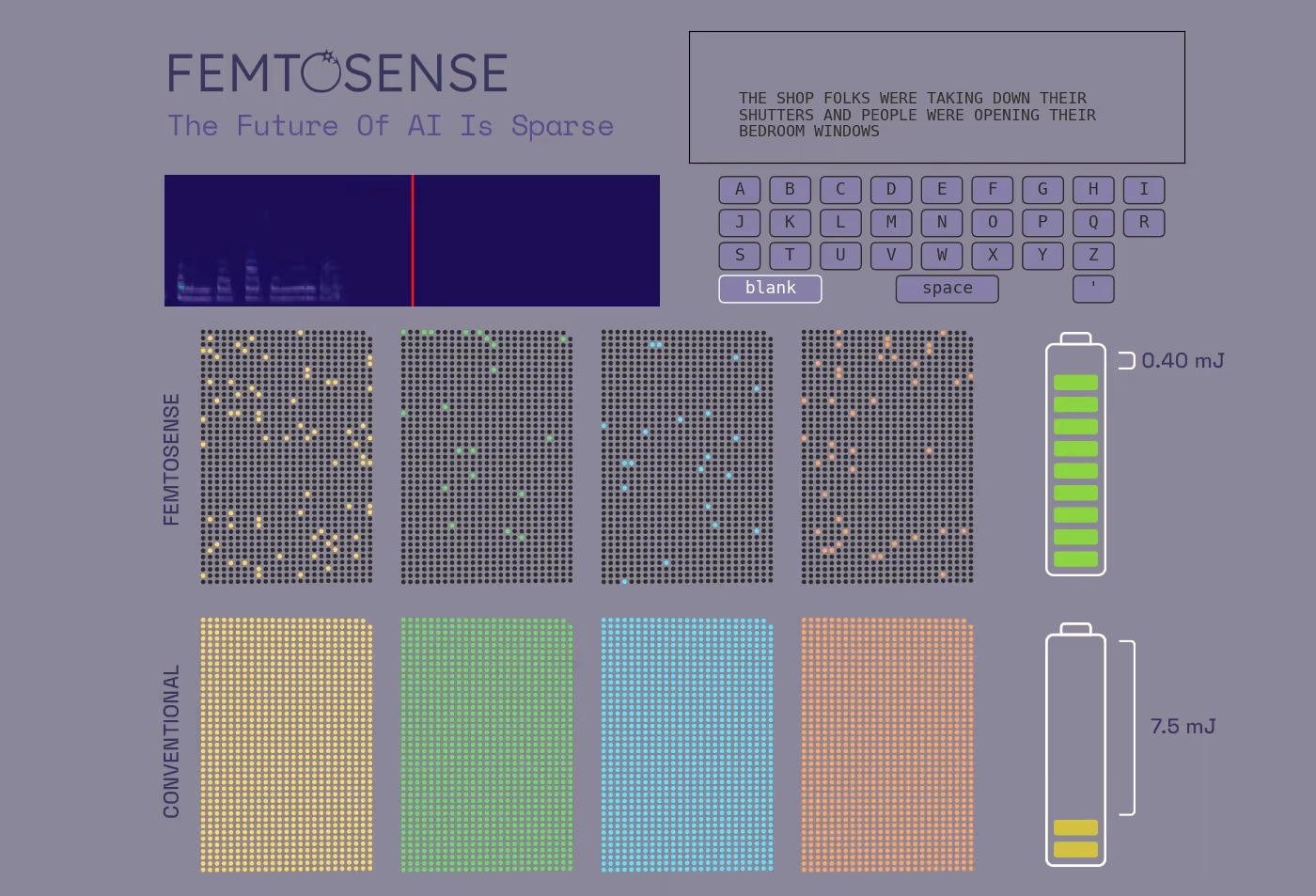Large AI systems like OpenAI’s GPT-3 might grab headlines, but the practical limitations of power consumption and cost — not capabilities — often determine where AI is deployed. For the most part, highly capable systems are relegated to the cloud because they’re too complex to run on edge devices with weaker hardware and limited connectivity.
Sam Fok laments that this is the case. He’s the CEO of Femtosense, a startup developing edge hardware designed to make AI processing viable for low-cost consumer electronics. Founded by members of the “Brains in Silicon” group at Stanford, which seeks to reverse-engineer how the brain uses relatively little data to learn, Femtosense aims to tackle use cases like noise suppression and speech enhancement for hearing aids and earbuds as well as security cameras, TVs and cars.
In support of the vision, Femtosense today closed an $8 million round valuing the company at $27 million and bringing its total raised to $11 million. Fine Structures Ventures led with participation from J2 Ventures, SV Pacific Ventures, Quest Venture Partners, Amino Capital, Sand Hill Angels and Gaingels.
“Hardware developers still build new hardware for existing workloads, and algorithm developers optimize for existing hardware. There’s an inherent bias in what gets built towards what exists,” Fok told TechCrunch in an email interview. “Femtosense is fairly unique in being intentional to develop both hardware and algorithms that push the hardware and algorithm design space into sparse computing that has yet to be exploited while still working well with existing technology.”

Femtosense’s first-generation processor, the SPU-001, hasn’t begun demoing yet, and mass production is at least several months off (sometime in 2023). But Fok claims that it will enable product developers to run 10 MB AI models at the power it normally takes to run 100 KB models. (The size of an AI model usually corresponds to sophistication; smaller models tend to be less accurate.)
Fok says that a company using the SPU-001 could run an AI-based noise cancellation algorithm that, when merged with applications like speech-to-text, delivers an improved user experience (think a voice-controlled TV remote that can better understand you in loud surroundings). Such a setup could also drive personalization, for instance, so sounds important for safety — like a siren, honking or crying — are let through while the rest are noise-canceled.
“The earbud market is growing, over-the-counter hearing aids will become a new market, and voice interfaces are becoming commonplace. In general, consumer product developers are competing to add more AI capabilities to their offerings,” Fok said. “The market is primed for AI adoption.”
Fok sees Syntiant, Greenwaves Technologies and AONDevices as Femtosense’s prime competitors. Fortunately, the startup stands to benefit — and is benefitting — from something of a boon in the semiconductor industry. In 2021, VC funding for global semiconductor startups more than tripled year-over-year, with $9.9 billion invested across 170 deals, according to PitchBook data.
Another development in Femtosense’s favor is the U.S. Food and Drug Administration’s recent rule to enable access to over-the-counter hearing aids — the kind of electronics the SPU-001 is designed to power. The August policy change allows consumers to purchase hearing aids directly from stores without the need for a medical exam, prescription or a fitting by an audiologist, creating a potentially lucrative new market category.
Despite the go-to-market challenges that lie ahead — fabricating a new chip isn’t easy — Fok claims that Femtosense, which is pre-revenue, has several enterprise and public sector customers lined up. (The company previously received a $2.1 million contract from the U.S. Office of Naval Research.) The 10-person company plans to hire two new employees this year and is already sketching out the next generation of its chip, which Fok describes as “general purpose” hardware to accelerate applications including computer vision and natural language processing.
“Femtosense is well-positioned to weather the [current economic headwinds] by raising funds immediately prior to it,” Fok said.































Comment